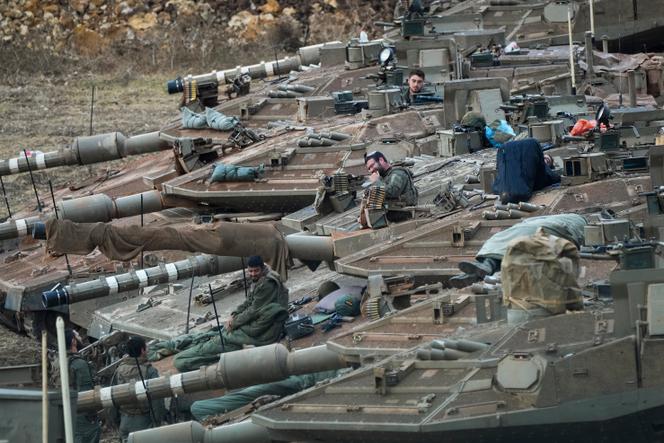


It is no longer the time for ambiguous statements or even doubts: On the night of Monday, September 30, Israel entered a second war, in Lebanon, after the one begun in Gaza in the aftermath of the deadly Hamas attack on October 7, 2023. In press releases, the Israeli army described ground operations in southern Lebanon as "limited, localized and focused," saying they were intended to target Hezbollah "targets and infrastructure." On Tuesday morning, the Israeli army reported "heavy fighting" with Hezbollah.
The Lebanese Shiite party, for its part, said it had targeted "movements of enemy soldiers" in two Israeli localities – Metula and Avivim – "with artillery fire," and it had fired rockets at "a gathering" of Israeli troops in the same area, located in northern Israel on the border with Lebanon. Lebanon is facing "one of the most dangerous phases in its history," said Lebanese Prime Minister Najib Mikati on Tuesday.
On the Israeli side, the 98th division is officially involved. They were withdrawn from Gaza at the end of August after months of war in the enclave. Other reinforcements were expected to arrive on the northern front, including two recently mobilized brigades of reservists.
In Israeli terminology, the operations were launched solely to destroy Hezbollah installations close to the "Blue Line," the border drawn by the United Nations between northern Israel and Lebanon. The "war aim" added by the government on August 16, to those already in force in Gaza provides for the "safe return of displaced people back to the North," in reference to 60,000 evacuees from a five-kilometer strip running the length of the border on the Israeli side. Kibbutzim and agricultural cooperatives were emptied of their inhabitants in October 2023, when the army feared a commando operation by Hezbollah's elite Radwan Force, then very present in the area.
The United States has not expressed outright opposition to a war that could spread to Iran's allies in the region. Joe Biden said he was "concerned," and on Monday called for a ceasefire. Despite these reservations, Secretary of Defense Lloyd Austin reassured his Israeli counterpart Yoav Gallant, who has been planning the war for a year, that the US supports Israel's right to defend itself and "agreed on the necessity of dismantling attack infrastructure along the border to ensure that Lebanese Hezbollah cannot conduct October 7-style attacks on Israel's northern communities," in a Pentagon readout of a call they had on Monday.
You have 69.76% of this article left to read. The rest is for subscribers only.
